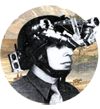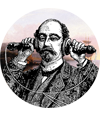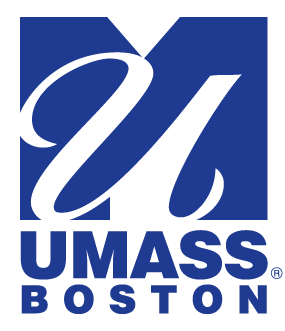Editorial: Organizing LOCALLY Online
Categories:
When I became aware of the Internet in the early 1990's, after more than 30 years of involvement in social movements and politics-- it was clear to me that this new technology would have a profound impact on community and political organizing at every level of this society. The combination of listservs that enabled large groups of people to communicate with one another simultaneously on matters of concern; search engines that offered easy access to information about issues of concern; and web sites that would enable individual activists and small groups to gain widespread attention for causes simply by promoting them online clearly had the potential to turn the entire political process on its head. We have not come quite that far yet. Yet the Internet has already had an even greater impact on democratic politics that we would have dared to predict ten years ago.
Of course, at this moment, it is the bloggers of America who captivate our attention. Many of them write quite well. They speak clearly and forcefully about the critical issues of the day: Iraq, health care, civil liberties, the electoral process itself. They promote one another. In 1776, Thomas Paine wrote the anonymous pamphlet called "Common Sense" that sparked the American Revolution. Bloggers are carrying this tradition forward.
Yet the Internet has done far more for activists than simply providing an online soapbox for their causes. It has made it possible for just a handful of activists to mobilize to recruit literally thousands of people into movements of common concern.
The best known example, of course, is MoveOn.org. Here just two software developers in the Bay Area, Joan Blades and Wes Boy, launched a well written online petition opposing Bill Clinton's impeachment that wins support all over the United States. The petition likely contributed to the Senate's ultimate decision not to convict the President at their trial. Three months later, MoveOn.org emerged as a fund-raising network, collecting thousands of dollars online to support candidates who voted for impeachment. Today, MoveOn.org has emerged as a national organization with 3.3 million members who are now mobilizing voter registration and get-out-the-vote drives all over the United States.
Unfortunately, the phenomenal success of MoveOn.org and activist groups on the Right like the Christian Coalition may intimate people working entirely at the local level that they cannot compete in this process.They're wrong.
In February, 2006, a single activist opposed to legal immigration, an Orange County retiree named Jim Gilchrist, decided to take matters into his own hands and organize a citizens patrol of his own between the Arizona and Mexican Border which he called, The Minuteman Project. He set up a web site, expecting to recruit another four or five people to help him. Instead, he was deluged with emails from hundreds of people pledging their support. By April, more than 1,000 people had joined Jim Gilcrist's Mexican Border Patrol. For better or worse, Jim Gilchrist made this happen, but the Internet made it possible.
Although MoveOn.org and Gilchrist's efforts are impressive, they are only early examples of how groups can use the Internet in politics. The greatest online organizing opportunities right now are not national, but local. Both major parties are now struggling to build grassroots organizations that help get voters to the polls on election day. They have recognized that the most persuasive mobilizer is the one who lives down the street.
The power of local mobilization creates a tremendous opportunity for people to wield real genuine political power right where they live. If they create an email list for just ten to twenty voting neighbors and use this list to build solidarity and recruit new members, then every politician running for office in their District will be soliciting their support. Close elections can be decided by people who make this commitment. In the hotly contested elections of 2006, it is likely that one or more stories like this will be told. That's when the battle to use the Internet achieve enduring political power in the America will begin.










